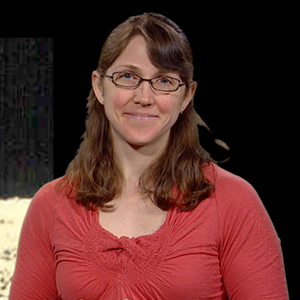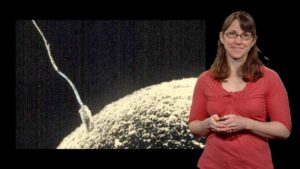Jayme Dyer is a postdoc in Michael Laub’s lab at Massachusetts Institute of Technology (MIT), where she is currently studying a cell cycle checkpoint in the model bacterium, Caulobacter crescentus. She completed her PhD in Daniel Lew’s laboratory at Duke University, where she studied polarity and gradient tracking in the yeast Saccharomyces cerevisiae. Her scientific interests are centered around how cells, which don’t have brains, “know” about themselves and the environment. She uses genetic, microscopic, and molecular biology tools to dissect how cells gather and respond to information.
Jayme is also passionate about teaching. After her PhD, she spent one year teaching as a Visiting Assistant Professor at Earlham College, where she incorporated iBiology lectures into her classes. She regularly volunteers as a judge for the local Science Fair and for science outreach activities at the Boston Museum of Science. She has received several Poster Awards from scientific meetings, an honorable mention from the ASCB Elevator Speech Contest, and a Teaching Mini-Grant and Dean’s Award for Excellence in Mentoring from Duke University. In her spare time, Jayme likes lifting weights. She has competed nationally in ladies arm wrestling, which combines philanthropy, theatrics and physical sport to empower women and build local communities.





